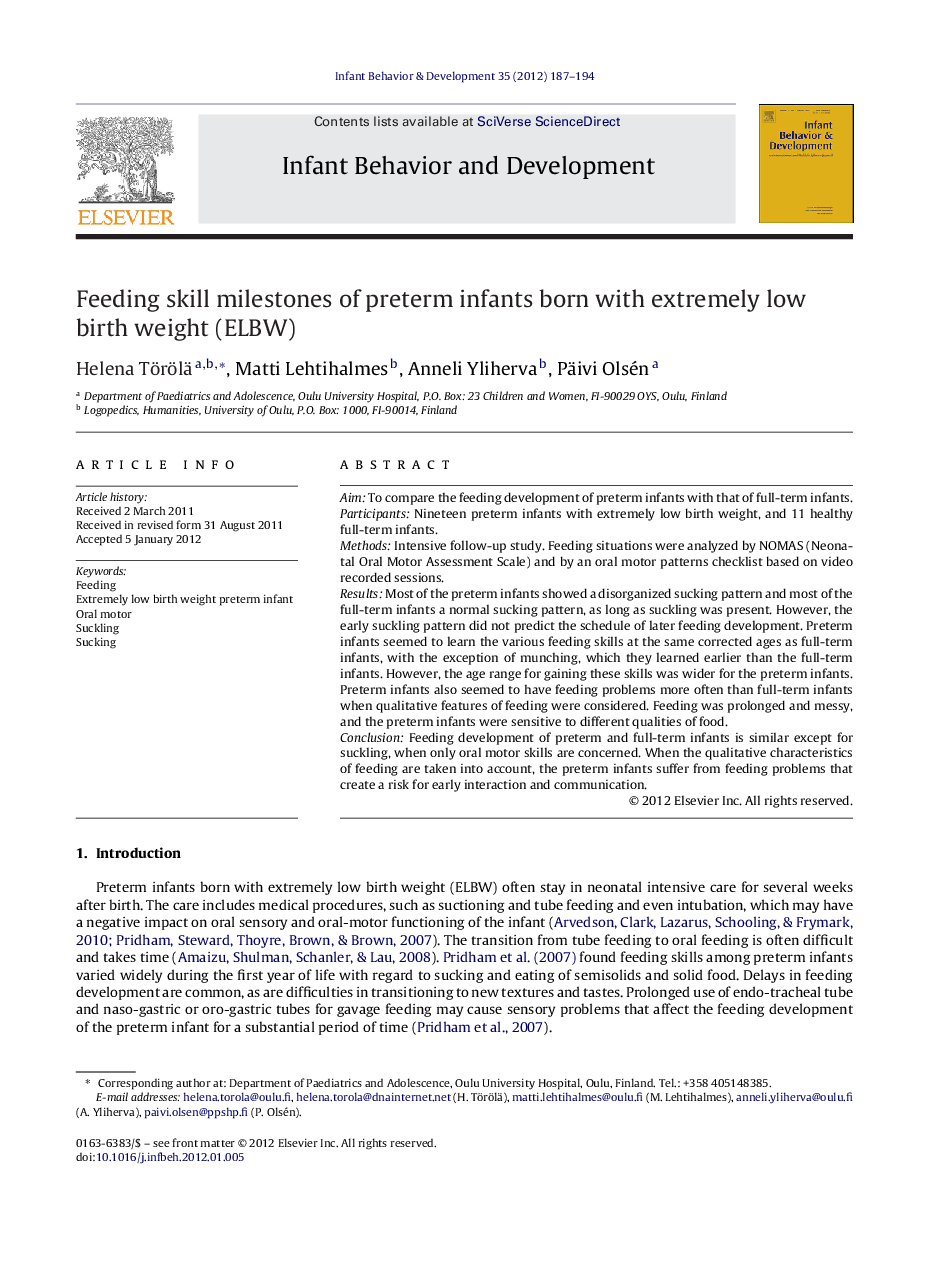| Article ID | Journal | Published Year | Pages | File Type |
|---|---|---|---|---|
| 917441 | Infant Behavior and Development | 2012 | 8 Pages |
AimTo compare the feeding development of preterm infants with that of full-term infants.ParticipantsNineteen preterm infants with extremely low birth weight, and 11 healthy full-term infants.MethodsIntensive follow-up study. Feeding situations were analyzed by NOMAS (Neonatal Oral Motor Assessment Scale) and by an oral motor patterns checklist based on video recorded sessions.ResultsMost of the preterm infants showed a disorganized sucking pattern and most of the full-term infants a normal sucking pattern, as long as suckling was present. However, the early suckling pattern did not predict the schedule of later feeding development. Preterm infants seemed to learn the various feeding skills at the same corrected ages as full-term infants, with the exception of munching, which they learned earlier than the full-term infants. However, the age range for gaining these skills was wider for the preterm infants. Preterm infants also seemed to have feeding problems more often than full-term infants when qualitative features of feeding were considered. Feeding was prolonged and messy, and the preterm infants were sensitive to different qualities of food.ConclusionFeeding development of preterm and full-term infants is similar except for suckling, when only oral motor skills are concerned. When the qualitative characteristics of feeding are taken into account, the preterm infants suffer from feeding problems that create a risk for early interaction and communication.
Graphical abstractFigure optionsDownload full-size imageDownload as PowerPoint slideHighlight► Feeding progress of ELBW preterm infants was compared to that of full-term infants. ► Both suckling and spoon feeding were studied. ► Suckling in ELBW infants was disorganized or dysfunctional, normal in 9/11 ft-infants. ► Infants of both groups reached the feeding milestones at approximately the same ages. ► Half of preterm and 2 of 11 full-term infants had feeding problems with spoon-feeding.
